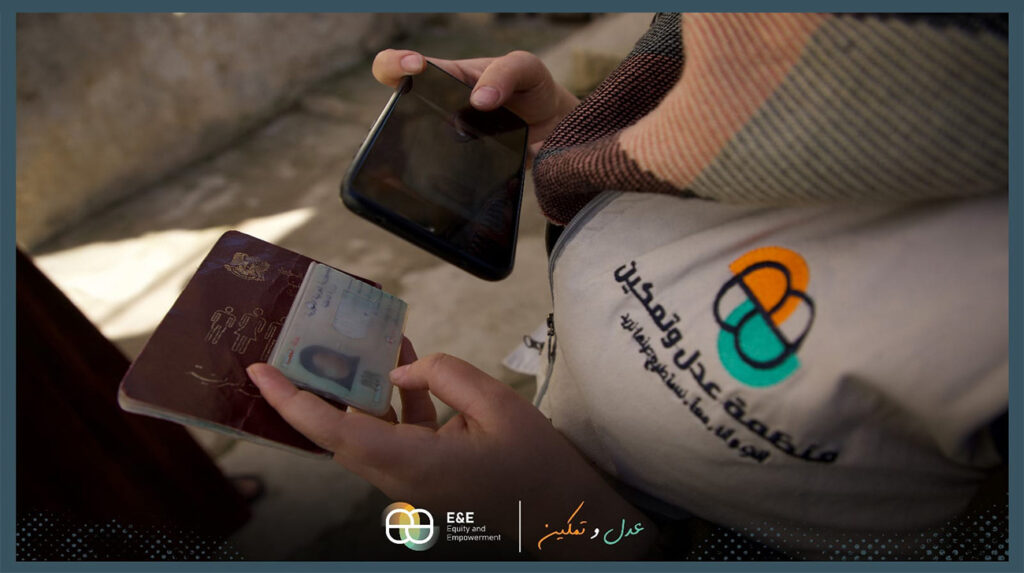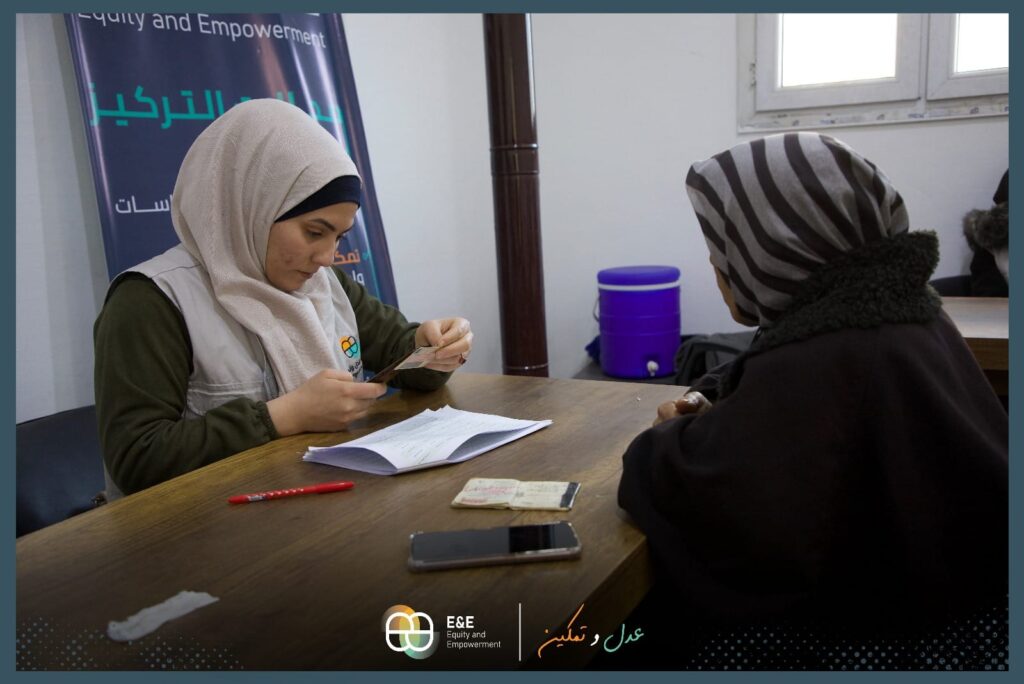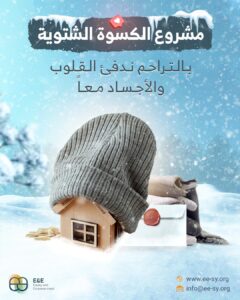
As the harsh winter months approach, the challenges faced by vulnerable communities in conflict-affected areas become more apparent. In Dana, in the Idlib countryside, the situation becomes particularly critical for women who are the heads of their households. To address these challenges and alleviate the harsh effects of winter, the “Cash for Winter Supplies” project has been launched. This project, which runs from February 1, 2024, to March 31, 2024, aims to provide financial assistance to these women, enabling them to meet the basic needs related to winter and ensure the well-being of their families.
In areas like Dana, winter can be severe, with temperatures dropping and the cost of essential items such as heating fuel, winter clothing, and insulation materials rising significantly. For households headed by widows, elderly women, and families with disabilities, who often already face economic difficulties, these additional expenses can be unaffordable. Without adequate support, these families are at risk of suffering from cold-related health problems, increased economic vulnerability, and a general decline in quality of life.
“What I remember most is that when the earthquake happened, there were no blankets or jackets. We left our destroyed homes with nothing,” said a child during focus group discussions with children in Idlib Governorate.
Providing targeted financial assistance to women who head their households and families with disabilities is critical for several reasons. First, it ensures that the most vulnerable families receive the support they need by providing the necessary supplies during the winter months. Second, it empowers women by giving them the ability to allocate resources according to their specific needs, thereby enhancing their sense of independence and dignity. Finally, such initiatives contribute to broader goals of social cohesion and community resilience, as supported families become better equipped to contribute to and engage with their communities.
The primary goal of the “Cash for Winter Supplies” project is to address the winter-related challenges faced by women-headed households in Dana by providing them with financial assistance. This overall goal will be achieved through the following specific objectives:
Financial Support:
Women’s Empowerment:
Community Well-being:

Identification and Outreach:
Cash Distribution:
Monitoring and Evaluation:
By the end of the project:
160 women-headed households received the necessary financial assistance to meet their winter-related needs.
The “Cash for Winterization ” project is a vital initiative aimed at supporting some of the most vulnerable segments of society. By providing financial assistance to women-headed households, the project not only addresses the immediate winter-related needs but also empowers women and strengthens the community’s resilience. As winter approaches, this targeted intervention will ensure that these families are adequately prepared and can face the cold months with greater confidence and security. Through such efforts, we can make a tangible difference in the lives of those most affected by conflict and displacement, fostering a more inclusive and supportive environment for all.

As the harsh winter months approach, the challenges faced by vulnerable communities in conflict-affected areas become more apparent. In Dana, in the Idlib countryside, the situation becomes particularly critical for women who are the heads of their households. To address these challenges and alleviate the harsh effects of winter, the “Cash for Winter Supplies” project has been launched. This project, which runs from February 1, 2024, to March 31, 2024, aims to provide financial assistance to these women, enabling them to meet the basic needs related to winter and ensure the well-being of their families.
In areas like Dana, winter can be severe, with temperatures dropping and the cost of essential items such as heating fuel, winter clothing, and insulation materials rising significantly. For households headed by widows, elderly women, and families with disabilities, who often already face economic difficulties, these additional expenses can be unaffordable. Without adequate support, these families are at risk of suffering from cold-related health problems, increased economic vulnerability, and a general decline in quality of life.
“What I remember most is that when the earthquake happened, there were no blankets or jackets. We left our destroyed homes with nothing,” said a child during focus group discussions with children in Idlib Governorate.
Providing targeted financial assistance to women who head their households and families with disabilities is critical for several reasons. First, it ensures that the most vulnerable families receive the support they need by providing the necessary supplies during the winter months. Second, it empowers women by giving them the ability to allocate resources according to their specific needs, thereby enhancing their sense of independence and dignity. Finally, such initiatives contribute to broader goals of social cohesion and community resilience, as supported families become better equipped to contribute to and engage with their communities.
The primary goal of the “Cash for Winter Supplies” project is to address the winter-related challenges faced by women-headed households in Dana by providing them with financial assistance. This overall goal will be achieved through the following specific objectives:
Financial Support:
Women’s Empowerment:
Community Well-being:

Identification and Outreach:
Cash Distribution:
Monitoring and Evaluation:
By the end of the project:
160 women-headed households received the necessary financial assistance to meet their winter-related needs.
The “Cash for Winterization ” project is a vital initiative aimed at supporting some of the most vulnerable segments of society. By providing financial assistance to women-headed households, the project not only addresses the immediate winter-related needs but also empowers women and strengthens the community’s resilience. As winter approaches, this targeted intervention will ensure that these families are adequately prepared and can face the cold months with greater confidence and security. Through such efforts, we can make a tangible difference in the lives of those most affected by conflict and displacement, fostering a more inclusive and supportive environment for all.
